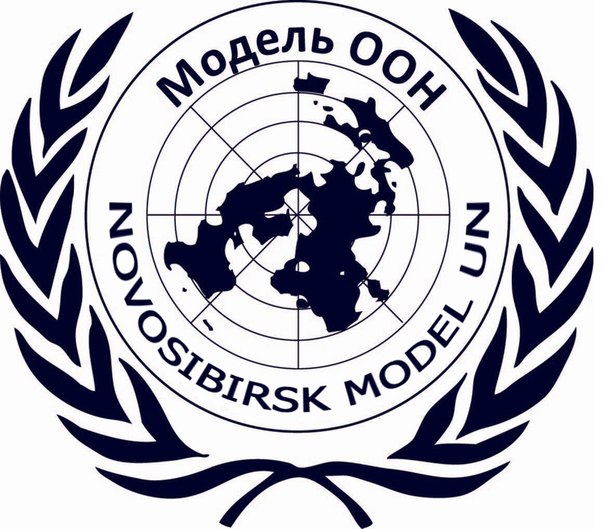
Novosibirsk international un model 2013

Tretyakova Natalia, PhD, Senior Lecturer,
Department of Modern History and International Relations,
Institute of Humanitarian Sciences,
Tyumen State University
Background Guide for the United Nations Security Council
Outline
Introduction................................................................................................................................
1. Historical Background...........................................................................................................
2. Key Documents...............................................................................................................
3. Recent Developments......................................................................................................................
4. Main Players and Its Positions..............................................................................................
5. Conclusion..............................................................................................................................
Links for further research.........................................................................................................
Introduction

http://www.konstant-z.de/news/blizhnij-vostok-na-raspute-%E2%80%93-i-izrail-kak-vsegda-v-centre/
The Middle East is one of the important regions in terms of geopolitics. It is the area where interests of great powers are interconnected and regional actors themselves try to play more independent roles.
From this point of view Israel and Iran are typical and at the same time stand apart from the countries of the Middle East. Traditionally Israel is considered as a country which surrounded by hostile Arabic states and interested first of all in its own survival. As for Iran we can say about strong ambitions to become a regional leader without wide support among most of Arabic states.
The situation in the region is unstable because of ongoing conflict between Israel and Palestine, nuclear ambitions of Iran and lack of common approach among great powers.
Furthermore Israel is the only state in the region which has nuclear weapons even though it has never proved or denied that fact. It is well known that Israeli nuclear arsenal is used as a means of deterrence prevent enemies from attacking Israel. At the same time the USA and its ally Israel accuse Iran of ambitions to develop its own nuclear weapons and launch missile systems which not only destabilize the situation but in the future could be used against Israel or other west oriented states. Moreover there is a risk of providing terrorist groups with nuclear weapons developed in Iran.
Thus on the one hand Israel, non-officially owning nuclear arsenal to defend itself tries to put pressure on Iran together with the USA and stop proliferation of the WMD in the Middle East.
On the other hand, Iran declares peaceful character of its nuclear program underlining the right to develop atomic energy. Teheran does not agree with the critics from Washington and Tel Aviv and blames them for double standards.
Meanwhile the key issue is that Iran is not ready to ratify the Additional Protocol and fully co-operate with the IAEA. It seems that Teheran has something to hide from the international community. The problem is escalating because the UN sanctions and embargos do not take effect and relations between Israel supported by the USA and Iran are getting worse.
In 2002, the IAEA began investigating allegations that Iran had conducted clandestine nuclear activities which had violated Tehran’s IAEA safeguards agreement. It is not possible to state that Iran has pursued nuclear weapons but there are some doubts whether Iranian nuclear program is exclusively for peaceful purposes. The IAEA Board of Governors referred the matter to the U.N. Security Council in February 2006. Since then, the Council has adopted six resolutions to require Iran to suspend its uranium enrichment program, its construction of a heavy water reactor and related projects, and go back to full cooperation with the IAEA ratifying the Additional Protocol.1
However, an August 2012 report from IAEA Director-General Yukiya Amano indicated that Tehran has continued to defy the Council’s demands by continuing work on its uranium enrichment program and heavy-water reactor program.2
So there are some doubts about peaceful character of Iranian nuclear program left and the Agency still has questions regarding “possible military dimensions to Iran’s nuclear program3.
Israel pays special attention to the situation around Iran because Teheran has had intensive propaganda against Tel Aviv since 2005 and announced several times that it is necessary to destroy Israel. Israel considers recent developments of Iranian nuclear program as a danger for its existence and since 2012 Tel Aviv has openly declared that ready to self-defend using strikes because there is no progress in negotiations.
On 30 March 2013 Israeli intelligent service announced the data which proved that Iran is preparing to start making its own nuclear bomb within 2 months and demanded Iran to explain the situation. But Teheran accused Israel of illegal activities and refuses to participate in the next round of negotiations which should be held on 5-6 April because of extreme pressure from Tel Aviv and Washington. On 1, April Israel made several surgical strikes against Iranian nuclear facilities called that preventive operation. The USA supported their ally. Iran launched rockets to attack main cities in Israel.
The UN Security Council is responsible to stop violence and restart negotiations as soon as possible. It is necessary to undertake immediate efforts to stabilize the situation in the Middle East because it may threaten both regional and global security.
